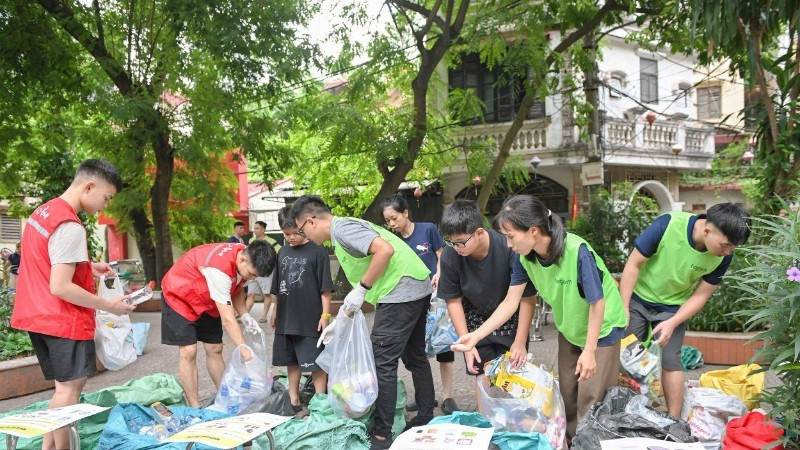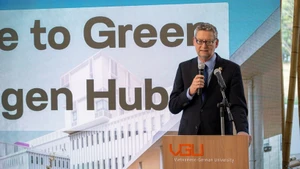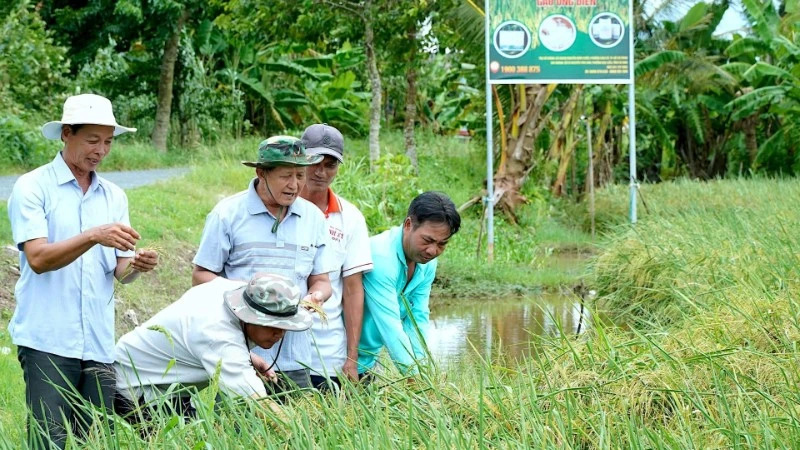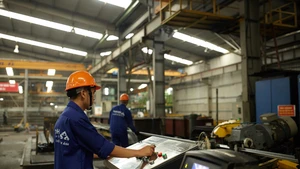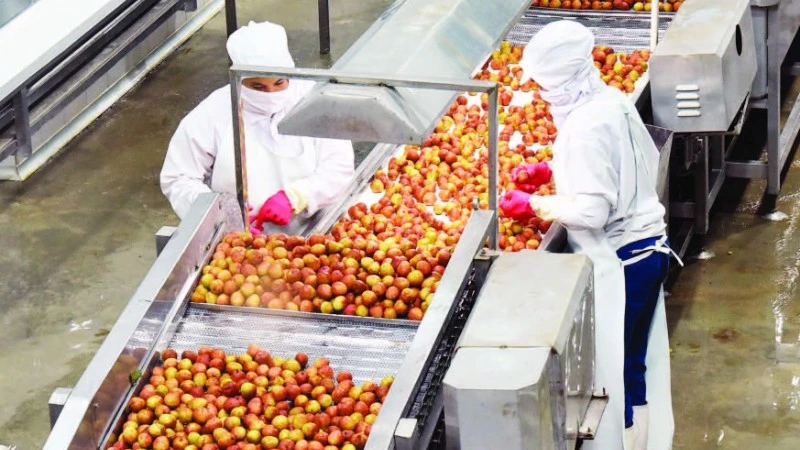The name “Tagom” is derived from two Vietnamese words: “tai che” (recycling) and “thu gom” (collection). The organisation encourages communities to actively participate in proper waste collection and sorting, adopt sustainable habits, and protect the environment.
Giving waste a “second life”
Tagom member Bui Toan observed that many people dispose of waste without sorting it, a practice that undermines recycling efforts. He emphasised that waste should be categorised into eight types to enable effective recycling.
In response, Tagom collaborates with local authorities and organisations to raise awareness and educate families on waste sorting practices. Their grassroots efforts aim to gradually shift public behaviour towards more sustainable habits.
Tagom's activities encourage communities to actively participate in proper waste collection and sorting, adopt sustainable habits, and protect the environment.
Dieu Anh, a Ha Noi resident, discovered Tagom’s initiatives through Facebook. Passionate about environmental causes, she joined their activities and learned how to distinguish between organic and inorganic waste. “I’ll teach my family and those around me how to sort waste properly,” she pledged.
Tagom’s co-founder Nguyen Thi Thuy Linh highlighted that waste is a resource to be fully utilised. Beyond common recyclables like paper, metal, and plastic bottles, Tagom also collects more challenging items such as plastic bags, food packaging, yoghurt cups, styrofoam boxes, medicine blisters, batteries, and electronic waste.
These wastes are delivered to recycling plants with high standards so that it can be repurposed into useful products or safely processed without harming the environment.
Cultivating green communities
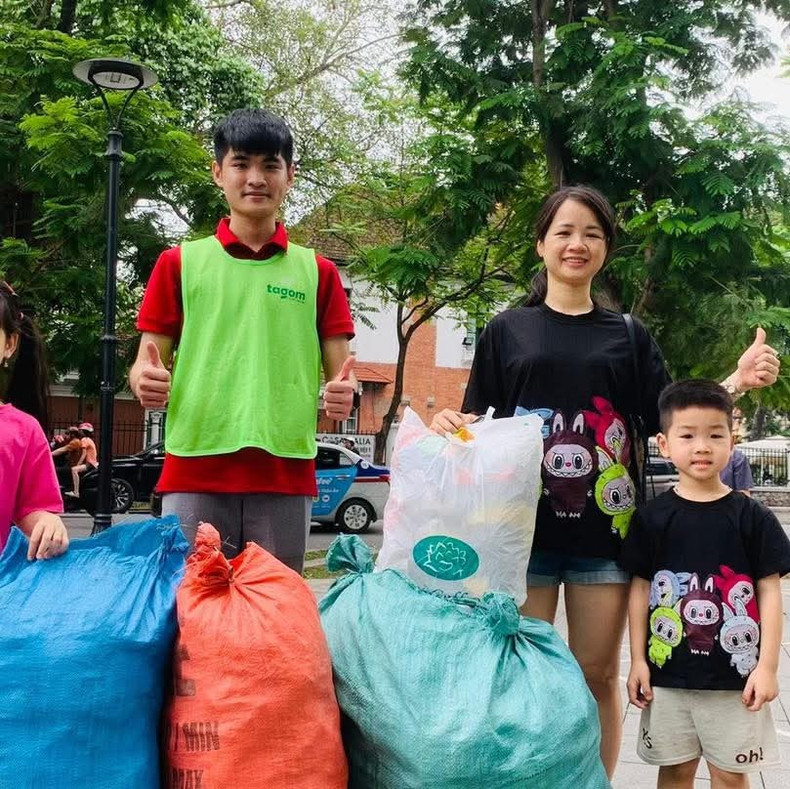
Once sorted by households, recyclable waste is further processed at Tagom’s stations before being transported to a central warehouse for detailed sorting, compacting, and delivery to recycling plants. Weekly transfers are carefully packaged to maximise space and reduce transport costs.
Each month, approximately 1,000 individuals bring waste to Tagom’s collection points, contributing 8–10 tonnes across Ha Noi and neighbouring provinces.
Nguyen Thu Uyen, an employee at the Deposit Insurance of Viet Nam’s Ha Noi branch, has become a key advocate for Tagom’s mission. Inspired by their work, she introduced waste sorting to her residential community in CT1 Trung Van, turning it into a model for others.
Her initiative led to monthly waste collection events at her office, organised by female staff members. Over the past two years, the movement has grown to include the Youth Union, with employees voluntarily sorting waste at home and bringing it in for recycling.
Living sustainably begins with simple actions—using cloth bags instead of plastic, carrying a reusable water bottle, or planting a tree in your garden. These small yet meaningful choices reflect our commitment to the planet.
“To promote the initiative, we started giving reusable cloth bags to women instead of plastic ones,” Thu Uyen shared proudly. “Now, all the women at our branch are active champions of the green lifestyle, spreading it to their families and communities.”
Tagom currently classifies waste into ten categories: recyclable plastics, hard-to-recycle plastics, hard plastic bags, soft plastic bags, paper milk cartons, paper, metal, glass, batteries, and electronic waste.
Living sustainably begins with simple actions—using cloth bags instead of plastic, carrying a reusable water bottle, or planting a tree in your garden. These small yet meaningful choices reflect our commitment to the planet.
A green lifestyle isn’t distant or difficult—it’s woven into our daily routines. Bring your first carton box, rinse a bottle, and place each item where it belongs. Every step counts.
